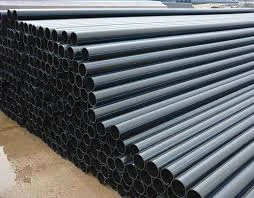Dec . 17, 2024 18:39 Back to list
Versatile Applications and Benefits of PVC Sheet Materials in Various Industries
The Versatility of PVC Plates A Comprehensive Overview
Polyvinyl chloride, commonly known as PVC, has become an indispensable material in various industries due to its unique properties and versatility. Among the myriad of applications, PVC plates stand out as a popular choice for both commercial and residential uses. This article delves into the characteristics, benefits, applications, and environmental considerations of PVC plates.
Characteristics of PVC Plates
PVC plates are made from a synthetic plastic polymer that is notable for its durability and resilience. They come in various thicknesses, colors, and finishes, making them suitable for myriad applications. One of the key properties of PVC is its resistance to chemicals, moisture, and weathering, which means it can withstand harsh environments. Furthermore, PVC plates do not corrode or rust, offering a long-lasting solution for many needs.
Another important characteristic is the lightweight nature of PVC. This makes it easy to handle, transport, and install in various settings without requiring heavy machinery. Additionally, they can be easily cut, drilled, and shaped to meet specific project requirements, adding to their appeal.
Benefits of Using PVC Plates
The advantages of PVC plates are numerous. Firstly, they are cost-effective compared to other materials such as wood or metal. Their longevity and low maintenance requirements also contribute to their affordability over time. Secondly, PVC plates are easy to clean and maintain, making them ideal for settings that require hygiene, such as kitchens and laboratories.
Moreover, PVC is a non-toxic material, which means it poses little risk to health when used appropriately. It can also be manufactured to be flame-retardant, providing an extra layer of safety in various applications.
pvc plate

Applications of PVC Plates
The applications of PVC plates are extensive. In the construction industry, they are often used for wall cladding, ceilings, and flooring. Their water resistance makes them particularly suitable for bathrooms, kitchens, and other areas prone to moisture. Additionally, PVC plates are commonly utilized in signage and displays due to their ability to be easily printed on and their weather resistance.
In the realm of manufacturing, PVC plates serve as surfaces for machinery, while in the arts and crafts community, they are often used for DIY projects, models, and prototypes. The versatility of PVC plates makes them a valuable asset across various sectors, including advertising, construction, and even the automotive industry.
Environmental Considerations
Despite their numerous benefits, it is essential to consider the environmental impact of PVC production and disposal. The production process can release harmful chemicals, and PVC is not biodegradable. However, initiatives are continuously being developed to improve PVC recycling methods. Many manufacturers are exploring ways to create recyclable PVC products, and increased efforts in recycling programs could mitigate many environmental concerns.
Conclusion
PVC plates represent a practical and versatile solution across a multitude of industries. Their unique characteristics, including durability, lightweight nature, and ease of maintenance, make them a preferred choice for various applications. While it is crucial to acknowledge the environmental considerations associated with PVC, ongoing developments in recycling and sustainable manufacturing practices offer a promising future for this material. As industries evolve, the role of PVC plates will likely continue to expand, further solidifying their place as a staple in modern material applications.
-
Durable Glossy PVC Rigid Sheet | Premium High-Shine Panels
NewsAug.26,2025
-
Durable PP Rigid Sheet: Lightweight, Chemical Resistant Solutions
NewsAug.21,2025
-
PVC Grey Sheet for Extraction: Chemical Resistant & Durable
NewsAug.19,2025
-
Durable PVC Pipe Fittings for Plumbing & Irrigation Needs
NewsAug.18,2025
-
HDPE Steel Belt Reinforced Spiral Corrugated Pipe | High Strength
NewsAug.17,2025
-
HDPE Pipe Fittings: Durable, Leak-Proof Solutions
NewsAug.16,2025

